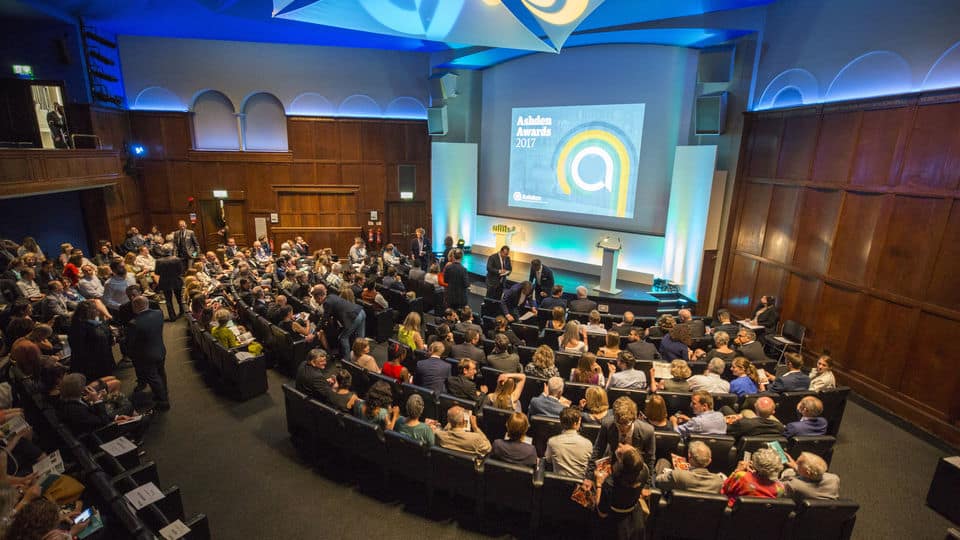Along with the presentation of the Awards, the evening included a display of beautiful photos from Enzo Barracco’s The Noise of Ice: Antarctica, a photobooth for the Stories of Change project, and also saw Ashden celebrate reaching more than 200 Award winners.
There to support the cause was former US Vice-President Al Gore who gave an inspirational keynote speech addressing the climate crisis, questions of change, and the sustainability movement.

He posed three questions to an audience of over 600 people about reversing the climate crisis: do we really have to change, can we change, and will we change?
To answer the first, he highlighted the increasingly powerful signs of Mother Nature to demonstrate the urgency of the crisis. With reference to heavy rainfalls, dry seasons and the disruption of the entire water cycle of the earth, as well as increasing air temperatures, the spread of diseases and the increasing strength of storms, he concluded that of course we must change.
To answer the second question, he used the Ashden Award winners as an example to prove that we can change. He praised their work and the good they do for individuals, families, communities and businesses.
He went on to explain that we are in the midst of a sustainability revolution – possibly one of the greatest global transformations – that is being embraced by developing and developed nations alike.
Yes we can change. There is now in our world a sustainability revolution and it is best understood, in my view, by placing it in the context of other great global transformations – the agricultural revolution, the industrial revolution, the digital revolution. This sustainability revolution has the breadth and magnitude of the industrial revolution but it has the speed of the digital revolution.
Al Gore
However, he explained that there is still a long way to go as we have not yet reached the point where pollution emission levels are starting to come down.
He described the aftermath of President Trump’s decision to withdraw from the Paris Agreement as having galvanised other US cities and countries to do more, with examples of coal plants being cancelled in China and India and the deployment of new sustainable technologies.
As for the final question – will we change – he compared the sustainability movement to the greatest moral movements of our time: the abolition movement, the civil rights movement, the anti-apartheid movement, the women’s suffrage movement, and the gay rights movement, how each overcame their challenges, and how ultimately, “the arc of the moral universe… bends towards justice.”
For the former US Vice-President, it comes down to a simple and clear binary choice between what is right and what is wrong.
It is wrong to use the sky as an open sewer, it is wrong to condemn future generations to a lifetime haunted by continual declines in their standard of living, and give them a world of political disruption and all the chaos that the scientists have warned us about. It is right to give them hope, it is right to give them a clean future, and a sustainable and prosperous future, and for those who say we may not have the will to change, always remember that the will to change is itself a renewable resource.
Al Gore

